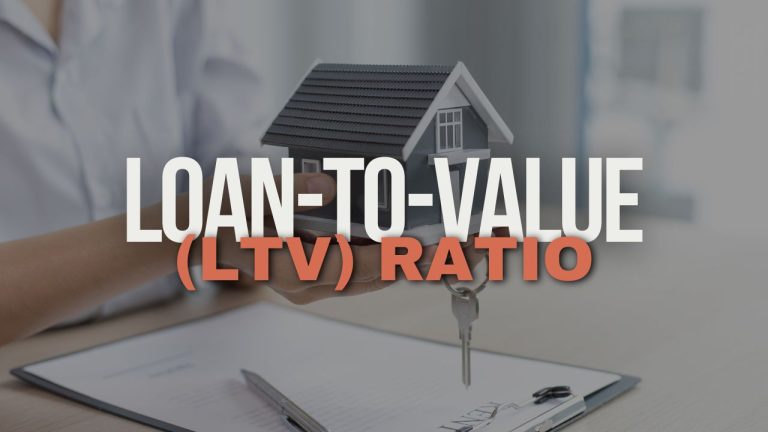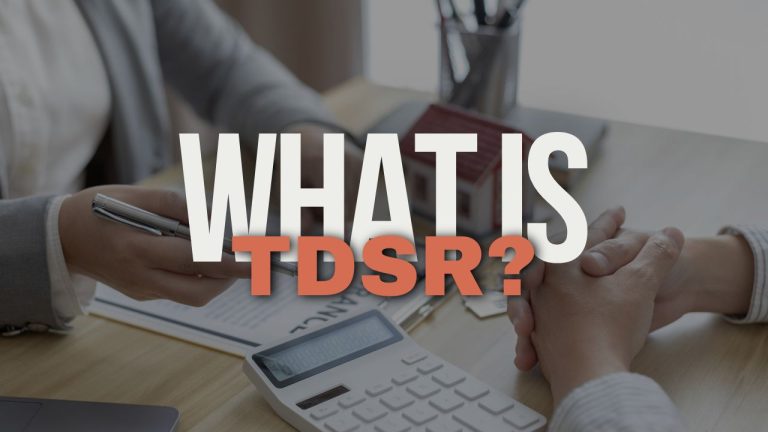Refinancing Your Mortgage Loan: What You Need to Know About Refinancing Your Mortgage Loan

Do you find yourself contemplating whether to refinance your mortgage loan or not, but getting stuck due to the uncertainty of the repercussions involved? In this article, we will simplify the topic of refinancing your mortgage loan, from the basic definition to the frequent myths borrowers encounter and give you all the details you need to make the right choice.
Table of Contents
- 🔍 Intro
- 🏠 What Refinancing a Mortgage Means
- 💡 Why HDB Owners Refinance Loans
- ⚠️ Penalties for Paying Off Early
- 📈 Why Refinancing is So Common
- 🚫 When Not to Refinance Your Loan
- 🧐 Common Myths About Refinancing
- 📚 The Importance of Understanding Your Mortgage
- 📈 Understanding Interest Rates and Their Implications
- 💰 Evaluating Your Financial Situation Before Refinancing
- 📅 The Role of Tenure in Your Mortgage Decisions
- 📈 Benefits of Lengthening Your Loan Tenure
- 🔄 Streamlined Processes for Refinancing
- ⚠️ Common Mistakes in Refinancing
- ❓ FAQ
🔍 Intro
Migrating your home loan to a new lender is a significant financial decision that will affect your monthly budget and long-term financial health. Homeowners should understand what refinancing is, and why it is done, and also know the potential penalties that come with it. This article will tell you everything you need to know about the crucial aspects of refinancing to make you feel comfortable and confident of your decision.

🏠 What Refinancing a Mortgage Means
Refinancing your mortgage means taking an existing loan from one bank and transferring it to another, or even changing your loan package within the same bank. This process is primarily aimed at securing a lower interest rate, which can lead to reduced monthly payments.
Refinancing is pretty much taking out a new loan to pay off the old, which can have different conditions, rates, and overall costs that may be lower. Most of the time, it is a very careful and tactical decision homeowners make once their lock-in period is over and they can truly benefit from the falling market rates.
💡 Why HDB Owners Refinance Loans
Mostly, HDB owners opt for refinancing of their loans for some reasons like the urge to utilize the lower interest rates and make huge savings over a long time. Since the interest rates are constantly changing, refinancing can be a tool that the homeowners use to obtain then a preferred rate rather than their existing loan.
Flexibility is the second reason. For example, a homeowner may need to change the loan duration to have a loan plan that is more manageable and that fits his or her current financial situation. Additional to that, refinancing can also present alternatives to those who are interested in decreasing their debt quickly or transferring their property within a specific time limit.
⚠️ Penalties for Paying Off Early
In the process of refinancing although it can aid one financially, it’s paramount to note the early repayment penalties that may be incurred. Until you exit your lock-in period, banks commonly impose about 1.5% of the amount you are prepaying as a penalty charge. This can relate both to partial payments and total loans erledigung.
Homeowners who think of selling their house incur the same charge on the total remaining loan balance. That is to say, it becomes very important to know about these charges before taking any steps on refinancing or making payments for your mortgage.
📈 Why Refinancing is So Common
Refinancing is a very frequent practice in Singapore because of the nature of mortgage loans. The majority of the mortgages are set for a short term, namely a period of 2-3 years. After this time period is over, the borrowers frequently find themselves with a higher interest rate, hence they start looking for better alternatives.
The streamlined processes offered by banks today have made refinancing more accessible. With online applications and automated systems, homeowners can easily compare rates and apply for new loans without the hassle of extensive paperwork. This ease of access encourages more homeowners to consider refinancing as a viable option for saving money.
🚫 When Not to Refinance Your Loan
Even though you may benefit from refinancing your mortgage loan, the timing of this is of utmost importance. In some predefined contexts, you shall find that refinancing is, in fact, the worst option приемлемой.
- During the Lock-In Period: If you are still within your lock-in period, refinancing can lead to hefty penalties. These penalties can significantly diminish any potential savings from lower interest rates.
- High Interest Rates: If market interest rates are higher than your current rate, refinancing may cost you more in the long run. Always compare the new rates against your existing one.
- Minimal Savings: If the savings from refinancing are minimal, it might not justify the costs associated with the process. Aim for a clear benefit that outweighs the expenses.
Refinancing Your Mortgage Loan: A Comprehensive Guide
🧐 Common Myths About Refinancing
Misconceptions regarding refinancing can drive people into making bad decisions. Below are some common false notions that you should be cautioned about:
- Refinancing is Complicated: Many believe that refinancing is an arduous process. In reality, it often involves straightforward paperwork and can be streamlined through online applications.
- CPF Cannot Be Used: A common misconception is that you cannot use your CPF to pay for bank loans. This is false; CPF funds can indeed be used for mortgage repayments.
- Only for Lower Rates: Some think refinancing is solely about securing lower rates, but it can also provide flexibility in loan tenure or payment structures.
📚 The Importance of Understanding Your Mortgage
In order to make well-informed financial choices, it is necessary to have a solid grasp of your mortgage. Some pertinent points are listed below for your consideration:
- Loan Terms: Familiarize yourself with the terms, including interest rates, loan tenure, and any penalties for early repayment. This knowledge helps you gauge when refinancing might be advantageous.
- Market Conditions: Stay updated on the market trends that affect interest rates. Knowing when rates are likely to drop can help you time your refinancing perfectly.
- Financial Goals: Define your financial objectives. Whether you’re aiming for lower monthly payments or planning to pay off your mortgage sooner, understanding your mortgage can guide your refinancing strategy.
📈 Understanding Interest Rates and Their Implications
Refinancing decisions are greatly influenced by interest rates. This is a guide for you to navigate this tricky situation:
- Fixed vs. Variable Rates: Understand the difference. Fixed rates provide stability, while variable rates can fluctuate, impacting your payments.
- Impact on Monthly Payments: Even a slight change in interest rates can significantly affect your monthly payments and overall loan cost. Be sure to calculate the long-term implications before making a decision.
- Market Trends: Keep an eye on economic indicators that influence interest rates. A drop in rates might signal a good time to refinance, but be cautious of potential volatility.
💰 Evaluating Your Financial Situation Before Refinancing
Prior to initiating refinancing, it is essential to perform a deep dive into the current situation of your finances. Below are some useful steps:
- Assess Your Credit Score: A higher credit score can secure better rates. Check your score and take steps to improve it before refinancing.
- Calculate Current Debt-to-Income Ratio: Lenders often look at your debt-to-income ratio. Ensure it is within acceptable limits to qualify for favorable refinancing options.
- Consider Future Financial Goals: Think about how refinancing aligns with your long-term financial goals. Whether it’s buying a new home or saving for retirement, ensure refinancing fits into your broader strategy.

📅 The Role of Tenure in Your Mortgage Decisions
Learning about tenure can be very important when refinancing your mortgage loan. The tenure is the period when you will pay back your loan. This can have a great effect on both your monthly payments and your overall financial plan.
The usual tenure for HDB loans is 25 years. However, with refinancing, it is possible to extend the duration. This is advantageous for those wanting lower monthly payments, particularly for those people who have the seasonal income, or the ones who care about cash flow.
Although the option of extending the loan tenure decreases the monthly payments, it might, in fact, lead to high total interest payment over the whole loan duration. Therefore, it is crucial to consider these aspects in line with your financial objectives.
📈 Benefits of Lengthening Your Loan Tenure
Increasing the duration of your loan can be quite beneficial in multiple ways:
- Lower Monthly Payments: A longer tenure means spreading out the loan amount over more months, resulting in lower monthly payments. This can ease financial pressure, especially for those with variable incomes.
- Improved Cash Flow: With reduced monthly obligations, you can allocate funds to other investments or savings, enhancing your overall financial health.
- Flexibility: If your financial situation improves later, you can always choose to shorten the tenure to pay off the loan faster.
But keep in mind that although the temporary advantage of decreased payments is attractive, you might ultimately pay more interest in the long run.
🔄 Streamlined Processes for Refinancing
Refinancing has developed considerably over the years and therefore has become easier for homeowners to do. Watch the following steps:
- Online Applications: Many banks now offer streamlined online applications, allowing you to submit necessary documents quickly. This eliminates the need for extensive paperwork.
- SingPass Integration: By integrating with SingPass, banks can access your information directly, reducing the hassle of gathering documents.
- Less Documentation Required: Today, you may not need to provide all your credit card statements when refinancing, simplifying the process substantially.
Understanding that these processes are fast and easy is the key factor making more homeowners to consider refinancing, thus they benefit from lower rates and better conditions.
⚠️ Common Mistakes in Refinancing
Although the ultimate goal of refinancing may be to save money, various mistakes are often made that negatively impact your refinancing experience:
- Not Shopping Around: Many homeowners stick with their current lender without exploring other options. Always compare rates and terms from multiple banks.
- Ignoring Total Costs: Focus on the interest rate alone can be misleading. Consider all associated costs, including fees and penalties, to understand the true cost of refinancing.
- Forgetting About Lock-In Periods: Some homeowners may not realize they are still within a lock-in period, leading to unexpected penalties when refinancing.
By steering clear of these traps, you can not only navigate through refinancing more effortlessly but also enjoy lower costs.

❓ FAQ of Refinancing Mortgage Loan
What is the best time to refinance my mortgage?
The best time to refinance is typically when interest rates are lower than your current rate, and you’re out of your lock-in period. Monitor market trends to identify the right moment for refinancing.
Can I refinance if I have a low credit score?
Although it could be quite difficult, some banks do provide refinancing options for people with poor credit scores. Therefore, it is very necessary to look for and select a creditor that is disposed to help you out with your financial issue.
How often can I refinance my mortgage?
As long as you complete your lock-in period, there are no limits on refinancing. However, it is important to make sure that every refinancing option should be economically effective.
Will refinancing affect my credit score?
Refinancing might momentarily hit your credit score a due to the hard inquiries. Nevertheless, if you handle your payments right after refinancing, your rating can stabilize as well as grow over the period.
Disclaimer: This information is provided for informational purposes only. PropsBit.com.sg does not endorse or guarantee its relevance or accuracy concerning your situation. While careful efforts have been taken to ensure the content’s correctness and reliability at the time of publication, it should not replace personalized advice from a qualified professional. We highly recommend against relying solely on this information for financial, investment, property, or legal decisions, and we accept no responsibility for choices made based on this content.




